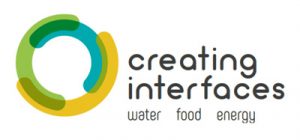Join JPI UE
Faq
FAQ
Please click here for the frequently asked questions we collected.
If you have an additional questions you are welcome to mail us at info@jpi-urbaneurope.eu
 It will develop and test innovative approaches for local knowledge co-creation and participation through Urban Living Labs in three midsize cities on water: Tulcea (Romania), Wilmington (USA) and Slupsk (Poland). Complemented by previous research and a citizen science toolbox, these labs comprise a user-defi ned co-creative approach where research questions, problems, and solutions are decided and implemented with stakeholders themselves.
It will develop and test innovative approaches for local knowledge co-creation and participation through Urban Living Labs in three midsize cities on water: Tulcea (Romania), Wilmington (USA) and Slupsk (Poland). Complemented by previous research and a citizen science toolbox, these labs comprise a user-defi ned co-creative approach where research questions, problems, and solutions are decided and implemented with stakeholders themselves.
 The Citizen Science Toolbox for data collection enable systematic collection and storage of data provided by citizens in Slupsk and Tulcea for the 2 different study cases. The collected data is supposed to help the local citizens and stakeholders as well as the researchers to better understand how food, water and energy are interconnected on a local level. The tool was created in a co-creation process adapted to the local interests and needs.
The Citizen Science Toolbox for data collection enable systematic collection and storage of data provided by citizens in Slupsk and Tulcea for the 2 different study cases. The collected data is supposed to help the local citizens and stakeholders as well as the researchers to better understand how food, water and energy are interconnected on a local level. The tool was created in a co-creation process adapted to the local interests and needs.

Each Story Map developed for Creating Interfaces cities provides an in-depth exploration of the local natural and built environment, urban development, socioeconomic characteristics, and the local governance structures. To provide a foundation for the local FWE Nexus case studies, the project detail different elements of the Water, Food, and Energy systems, focusing on the production, consumption, and distribution. Where possible, the StoryMaps reply on spatial data and web mapping services from ArcGIS Online for an interactive user experience. The StoryMaps include a basemap for general reference, web maps (created by our team or by connecting to a local municipal or county map service), tables, charts, graphs and photos, as well as text descriptions accompanying web maps and other visualizations. Availability of spatial and non-spatial data varied for each city and depended on local GIS resources, data sharing policies and availability of information through open source platforms.
Visualizing Food-Water-Energy Nexus tool
Creating Interfaces project video
Want to know more about Creating Interfaces? Read the results interview!
Creating Interfaces – Building capacity for integrated governance at the food-water-energy-nexus in
cities on the water
Duration: 2018–2021
Internet: creatinginterfaces.eifer.kit.edu/
Contact: Pia Laborgne, European Institute for Energy Research (EIFER)
E-mail: laborgne@eifer.org
Budget: 1.745.513 €
Partners: European Institute for Energy Research (EIFER), Nicolaus Copernicus University, University Corporation for Atmospheric Research (UCAR), Pracownia Zrownowazonego Rozwoju (PZR), University of Delaware, Danube Delta National Institute for Research and Development (DDNI), 52°North Initiative for Geospatial Open Source Software, Simbiotica, University of Warwick, Plantagon International, KTH Royal Institute of Technology